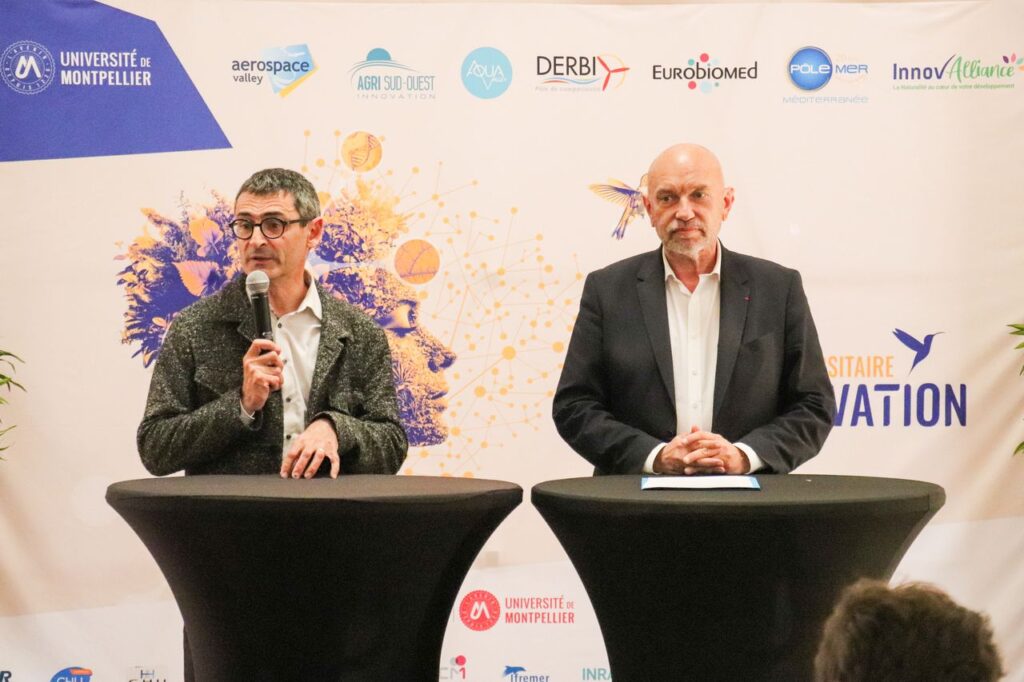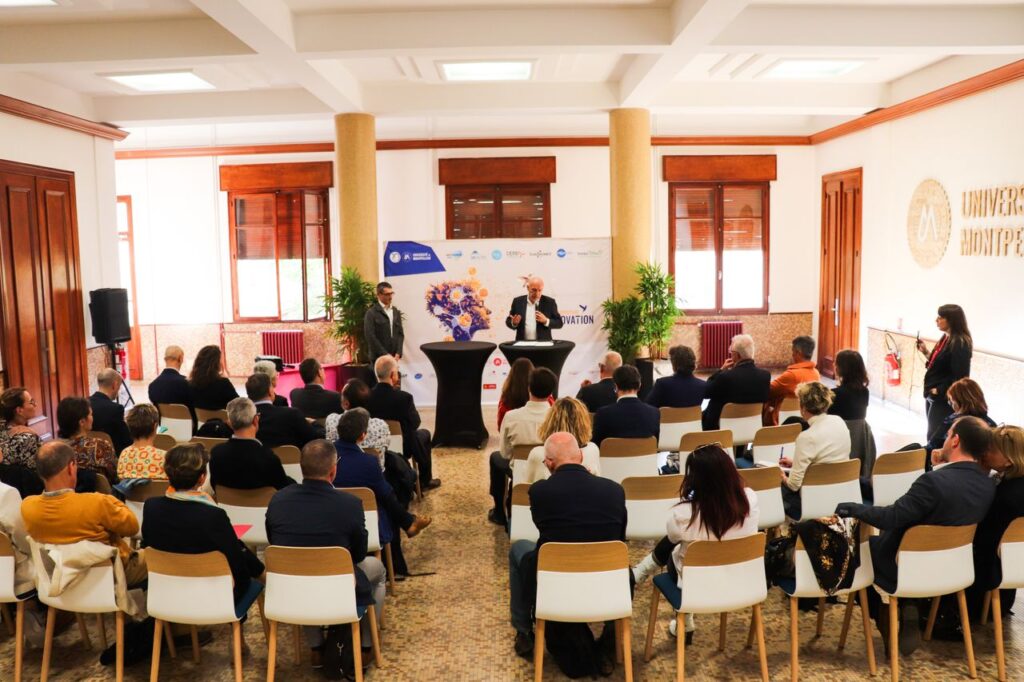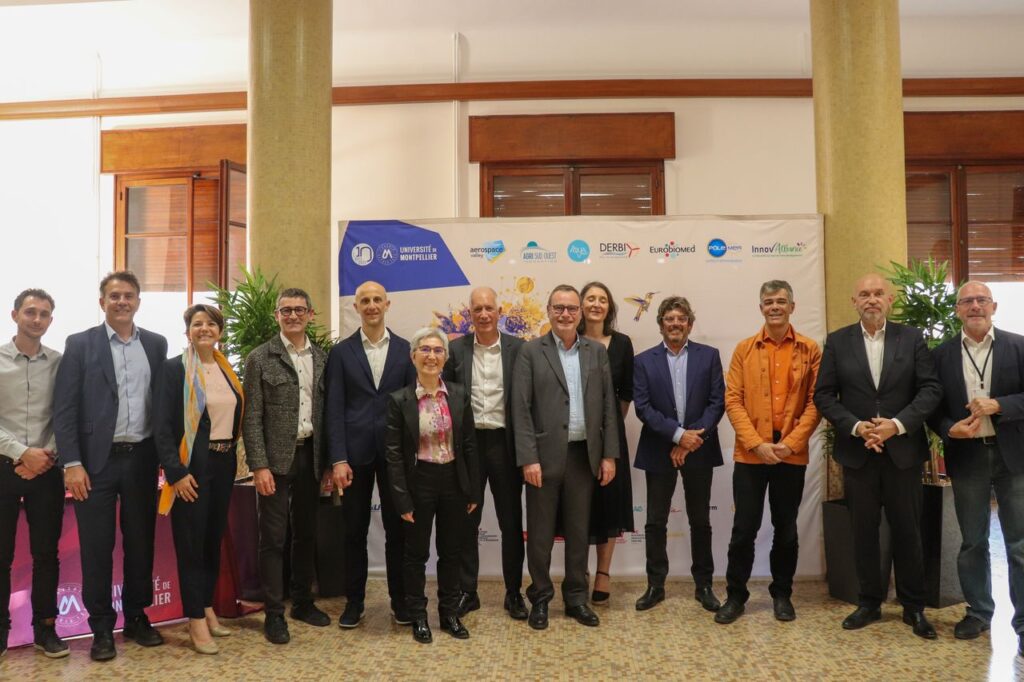Philippe Combette: between the PUI and competitiveness clusters, a unique partnership to "chart a common course"
On Monday, April 7, the Montpellier University Innovation Cluster, led by the University of Montpellier, and the seven competitiveness clusters in the region signed their very first partnership agreements. The goal: to strengthen synergies between the worlds of research and socio-economics, and to boost the arrival of start-ups on the market. For Philippe Combette, Vice President of the University of Montpellier in charge of partnerships and innovation, "there will be a before and after."

The University Innovation Cluster has just signed a partnership agreement with Montpellier's seven competitiveness clusters. In a nutshell, what is at stake?
Through this partnership agreement, we are connecting the heart of deep tech research to the ecosystem around us. We have academic research, laboratories, platforms... But as part of the University Innovation Cluster's (PUI) mission, we must promote exchanges between the academic world and the socio-economic world. From now on, the competitiveness clusters will contribute their expertise and networks. Aerospace Valley (focused on aerospace), Aqua-valley (water), Agri sud-ouest innovation (agriculture), etc. Each cluster has been chosen in direct relation to the themes addressed by the Montpellier PUI. And through the creation of jobs and values that we are working towards together, this partnership will enable us to be in direct contact with citizens.
In practical terms, how will this work?
In practical terms, each cluster is committed to participating in initiatives to raise awareness of innovation. We will also agree to jointly promote events and key dates for the competitiveness clusters and the PUI. And then, in the pre-creation phase, our projects will be able to benefit from the status of associate member of the cluster.
The interest for the PUI is both to successfully launch the laboratories' projects and to attract external projects based on the needs of local stakeholders.
It is very beneficial for a young company to be able to take advantage of the strengths of a competitiveness cluster, whether in terms of expertise, project monitoring, support, or access to the network. It is essential. For us, this partnership is a powerful move. It provides a foundation for the region. Each party will become an ambassador for the other.
What was your relationship like up until now?
There were ties, but they were neither structured nor structuring. There was no collective strategy. Today, we believe that this merger will enable us to chart a common course.
What will your priorities be?
The founding members of the PUI had already defined thematic roadmaps. These were designed to improve internal coordination, and now we are adding more people to the highway! For example, we are prioritizing digital health, vineyards and wine, water, oncology, etc. As part of this partnership, the PUI leader is committed to inviting the relevant cluster to follow-up meetings on these roadmaps, and through their sector vision, they will also contribute to these major areas.
Ultimately, the goal is to promote industrial growth in the region. Do you have any specific targets in mind?
Yes, we are going to put in place quantitative indicators to assess the number of new businesses created, the number of collaborative research contracts, and the number of technology transfers. There will be a before and after. I really feel that this will bring even more energy and momentum.
The aim is also to strengthen the region's expertise at national and international level. Do international political instability and Donald Trump's trade war make you think differently?
Absolutely, particularly in terms of industrial sovereignty. Given the current situation, this connection between competitiveness clusters and the academic world seems more necessary than ever. The same goes for the recognition of regions at the local and European level. Industrial practices are going to change, and public research institutions must be part of this dynamic.

